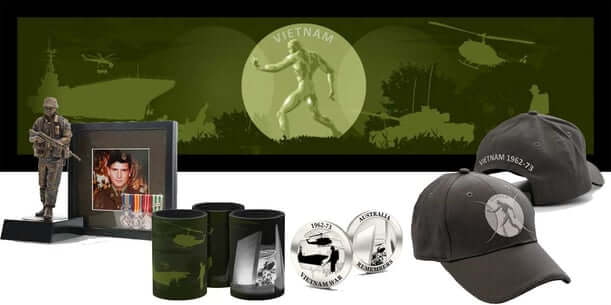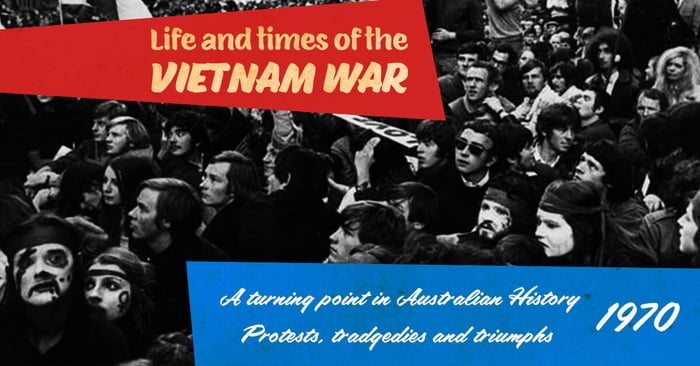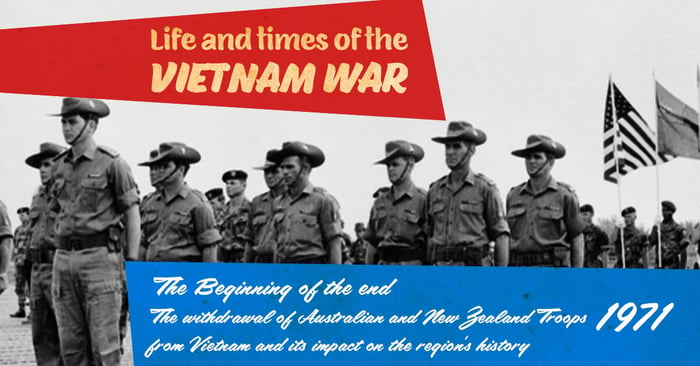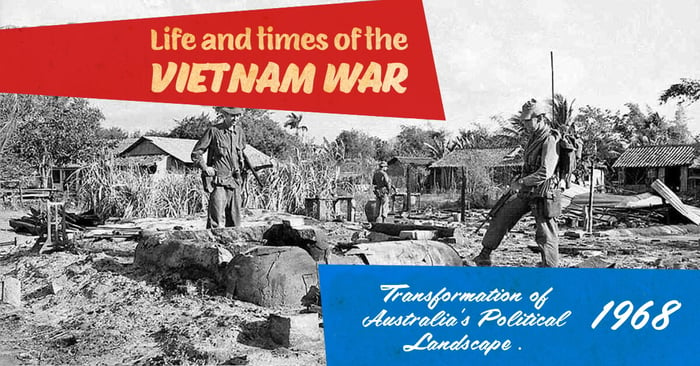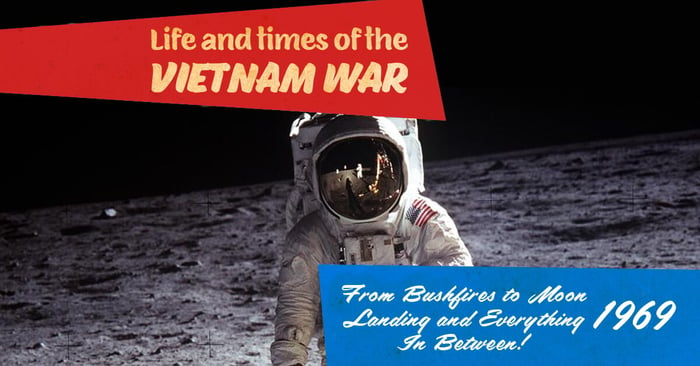
A Look Back at Australia's Historic Year of 1969
From tragic bushfires to remarkable military achievements, from landmark legal decisions to ground-breaking space missions, this year was full of memorable moments that continue to impact Australia today.
Life & Times
The year 1969 began with devastating bushfires in Victoria that claimed the lives of 23 people and caused widespread destruction. The fires, which burned across 250,000 hectares, destroyed over 230 homes and dozens of other buildings. The tragedy also significantly impacted local wildlife, with 12,000 heads of stock lost to the blaze.
On 24 May 1969, WO2 Keith Payne, a company commander with a mobile strike force, earned the fourth Victoria Cross awarded to the Australian Army Training Team Vietnam (AATTV). Payne's exceptional bravery and selflessness during the Vietnam War earned him this prestigious honour. They made him a symbol of Australia's military prowess. 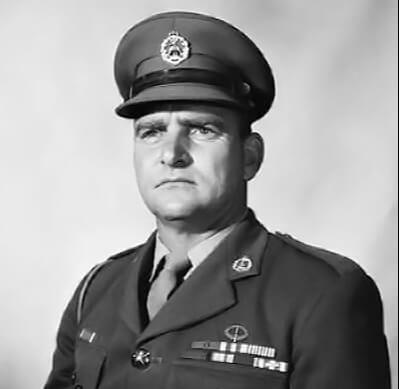
Keith Payne is oldest living recipient of the of the original Victoria Cross. He is one of the most decorated soldiers of Australia and continues to inspire others. Read more about him here.
03 June of 1969, tragedy struck again when the Royal Australian Navy aircraft carrier HMAS Melbourne collided with the United States Navy destroyer USS Frank E. Evans in the South China Sea. The collision resulted in the sinking of USS Frank E. Evans and the loss of 74 crew members. The incident remains one of the worst naval disasters in Australia's history.
The Battle of Binh Ba was a significant military engagement during the Vietnam War on 6 June 1969 in the Binh Ba village, Phuoc Tuy province, South Vietnam. Australian forces were involved in the battle, called Operation Hammer, a large-scale operation to clear enemy forces from the village.
On the first day of the battle, Australian soldiers from the 5th Battalion, Royal Australian Regiment (5RAR), 1st Australian Task Force (1ATF) encountered strong resistance from North Vietnamese Army (NVA) and Viet Cong (VC) forces. The Australians were supported by artillery and airstrikes. After intense fighting, they managed to secure the village by the end of the day.
The second day of the battle saw the Australians clearing the village of remaining enemy forces and searching for weapons caches.
The battle resulted in significant casualties for the NVA and VC forces, with estimates of approximately 100 killed and the Australians suffering one dead and ten wounded. The Australian soldiers were praised for their bravery and professionalism, and the battle was considered a significant success in the broader context of the war.
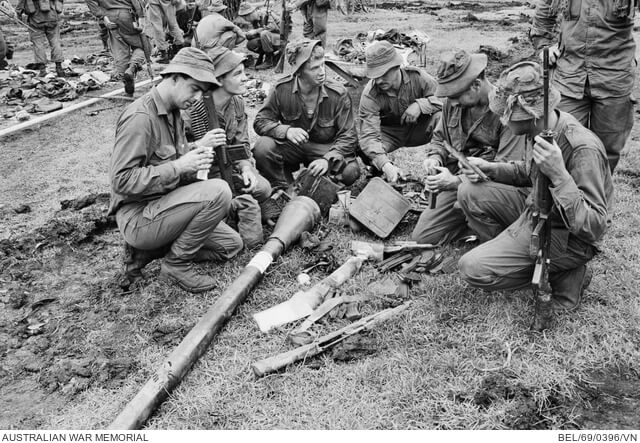 Soldiers of B Company and the Intelligence Section of 5 Battalion, The Royal Australian Regiment (5RAR), inspecting captured enemy weapons at Binh Ba after the battle of 6-7 June 1969.n.
Soldiers of B Company and the Intelligence Section of 5 Battalion, The Royal Australian Regiment (5RAR), inspecting captured enemy weapons at Binh Ba after the battle of 6-7 June 1969.n.
The Battle of Binh Ba highlighted the challenges faced by Australian forces in Vietnam, including the difficulty of fighting a guerrilla in a jungle environment, the need for accurate intelligence and effective use of air power, and the psychological toll of combat on soldiers. It also underscored the importance of international support and cooperation in the Vietnam War, with Australian forces fighting alongside South Vietnamese troops.
In June of 1969, the Commonwealth Conciliation and Arbitration Commission ruled that equal pay for women doing the same work as men must be phased in by 1972. This decision marked a significant milestone in the fight for gender equality in Australia.
On 20 July 1969, the world watched in awe as NASA successfully landed the first humans on the moon. The Apollo 11 mission captivated people around the globe, and Australia played a significant role in broadcasting the historical moment to the world. The main transmission feed was switched to Honeysuckle Creek Tracking Station in Canberra and then to Parkes Observatory in New South Wales. The mission was broadcast live to millions of people. This event was a testament to the incredible technological advances and the extraordinary achievements of human exploration. It was a moment that brought people together worldwide in a shared sense of wonder and awe. Landing on the moon symbolised human potential and what we can achieve when working together towards a common goal.
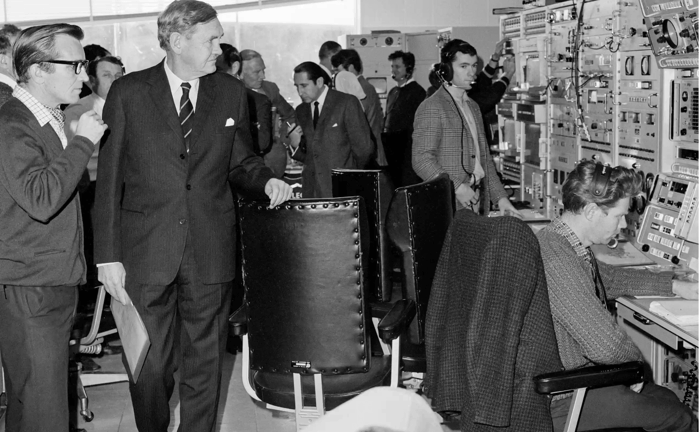
Prime minister John Gorton at Honeysuckle Creek tracking station near Canberra during the Apollo 11 moon landing in 1969. Photograph: Angus Kendon/National Archives of Australia
In August of that year, the Morgan Gallup Poll found that 55% of Australians wanted their troops brought home from Vietnam. This reflected the growing anti-war sentiment in Australia and around the world.
On 3 September, Ho Chi Minh, the revolutionary leader who fought for Vietnam's independence, died in Hanoi at 79. This marked the end of an era and was a significant moment in Vietnam's history.
The following month, on 2 October, Australian tennis player Rod Laver achieved his second Grand Slam by winning the US Open. Laver had already won the Australian, French, and Wimbledon that year. His victory at the US Open cemented his status as one of the greatest players ever. 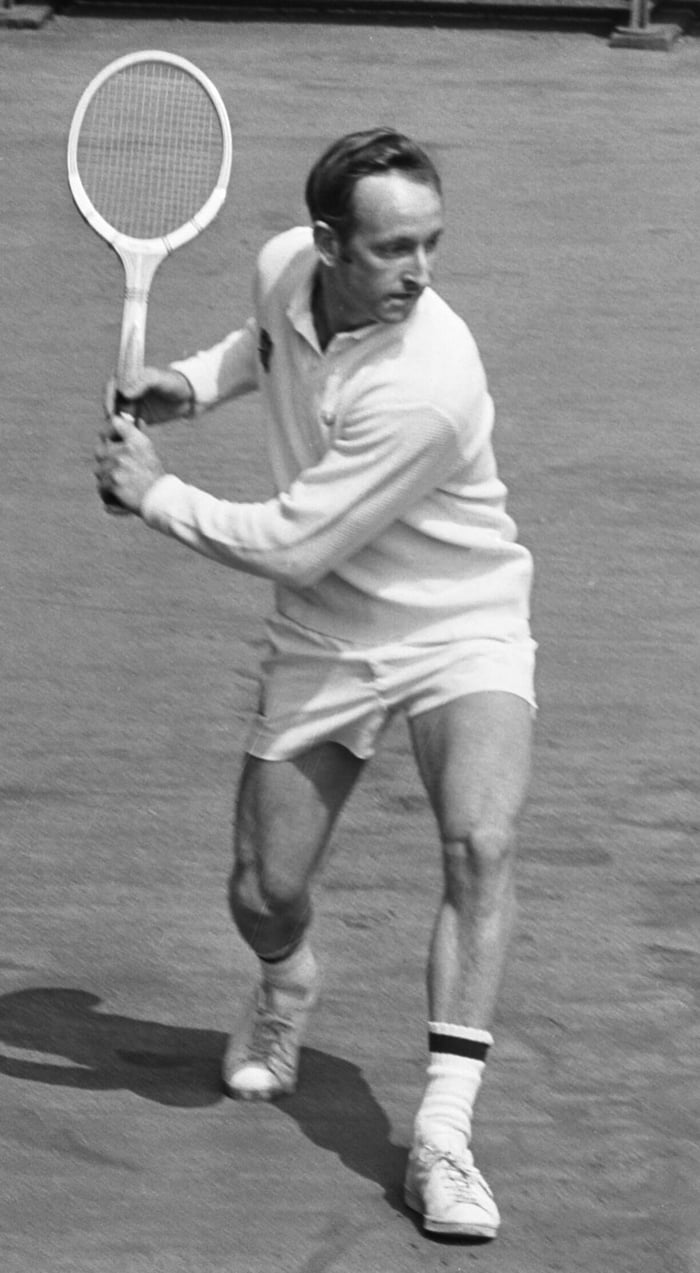
Rod Laver won the US Open in 1969
On 16 December, following the plans by the US Government to withdraw another 50,000, the Australian Prime Minister, Sir John Gorton, advised that any further substantial reductions would include Australian forces. This marked a turning point in Australia's involvement in the Vietnam War and the beginning of the end of Australia's military involvement in the conflict.
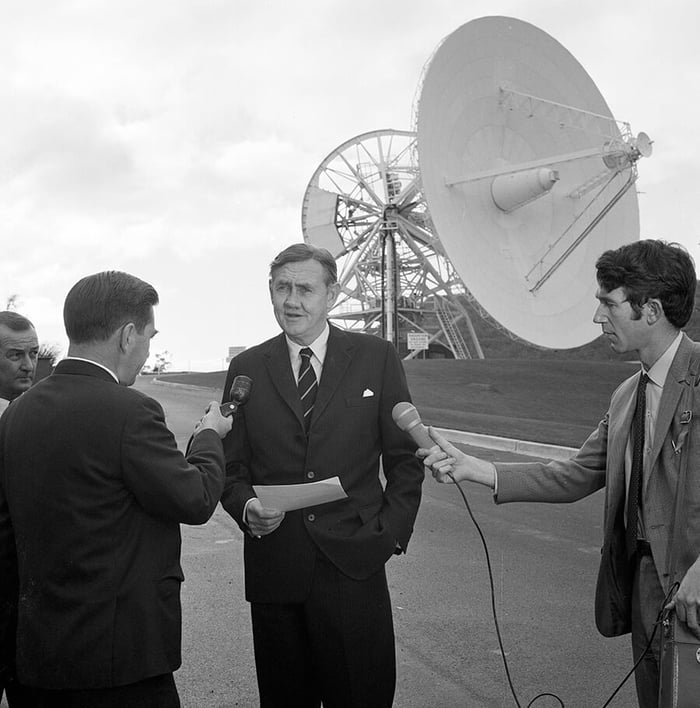
Prime Minister, Sir John Gorton
1969 was a year of significant events that shaped Australia's history and the world. From the tragedy of the bushfires in Victoria to the triumph of the moon landing, from the loss of Ho Chi Minh to the success of Rod Laver, and from the growing anti-war sentiment to the withdrawal of Australian troops from Vietnam, it was a year of both joy and sadness, progress, and setback. Nevertheless, these events have left a lasting legacy and continue to shape our world today.
Did you enjoy reading about the history of Australia in 1969? Check out some of our other blogs from the Life and Times of the Vietnam War.
Music of 1968
In 1969, Australia was alive with the sounds of rock and roll, with hit songs like "The Real Thing" by Russell Morris and "Honky Tonk Women" by the Rolling Stones dominating the airwaves. The year was filled with iconic songs that captured the era’s essence, reflecting Australia's changing times and cultural movements worldwide.
|
No. |
Song Title |
Artist |
|
1. |
Something / Come Together |
The Beatles |
|
2. |
Honky Tonk Women |
Rolling Stones |
|
3. |
Ob-La-Di, Ob-La-Da / While My Guitar Gently Weeps |
The Beatles |
|
4. |
The Real Thing |
Russell Morris |
|
5. |
Suspicious Minds |
Elvis Presley |
|
6. |
Part Three into Paper Walls / The Girl That I Love |
Russell Morris |
|
7. |
Penny Arcade |
Roy Orbison |
|
8. |
Get Back / Don't Let Me Down |
The Beatles |
|
9. |
Hair |
The Cowsills |
|
10. |
Where Do You Go To (My Lovely) |
Peter Sarstedt |
|
11. |
In the Ghetto |
Elvis Presley |
|
12. |
Eloise |
Barry Ryan |
|
13. |
White Room |
Cream |
|
14. |
The Ballad of John and Yoko |
The Beatles |
|
15. |
The Star |
Ross D. Wyllie |
Join the Conversation
We're helping Australians of all ages better understand the life and times of our Vietnam Veterans as we commemorate the end of Australia's involvement in the war 50 years ago. We're sharing interesting social bits and pieces from the Vietnam War era to give you a feel of the world back then, but most importantly we're sharing your memories, stories, and pride. Your memories of the Vietnam era; your family growing up in the 1960s and 70s; or stories you have about the life and times of your veteran dad, pop, uncle, or aunt will breathe life into their story. Share your pictures, anecdotes, and memories so others can see our veterans as more than soldiers. We honour, respect and admire, but few know. Help us honour our Veterans.
















